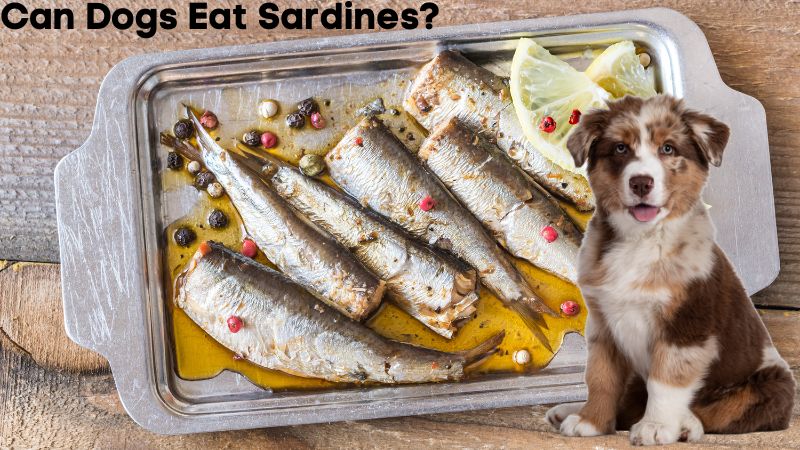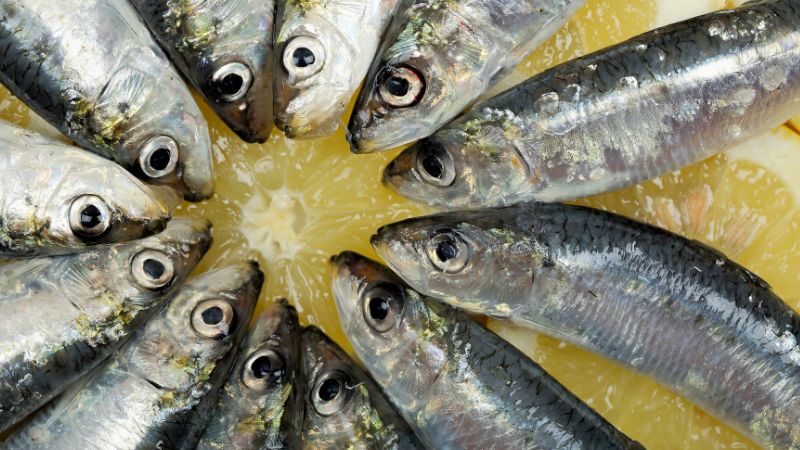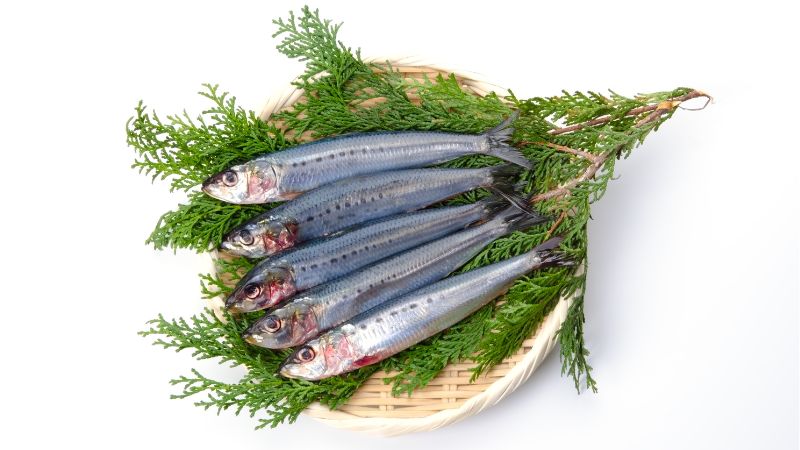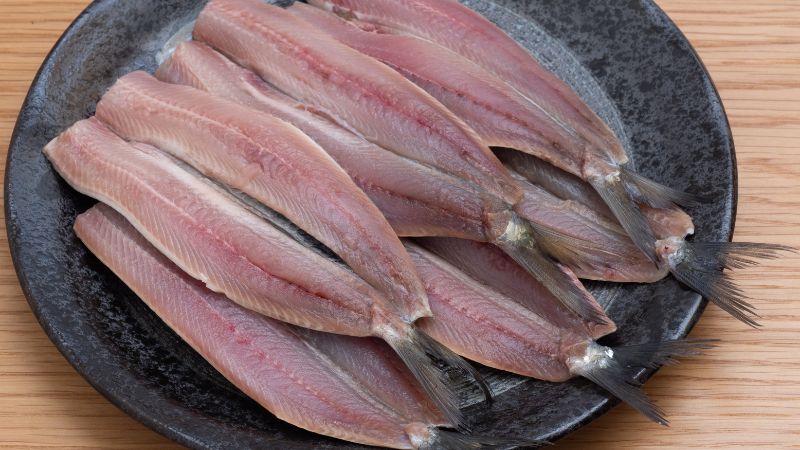
Pets love food, but it’s not always clear which foods are safe for them or even which foods are beneficial.
Several factors should be considered before offering various meals to dogs, ranging from an allergic reaction to blood glucose levels.
Are you thinking of adding some new food to your dog’s bowl? There might not be a first thought that comes to your mind when you think of sardines, but sardines are very healthy for humans. Can your dog eat sardines too?
In short, yes. Sardines are among the best fish for your dog to eat and an excellent protein source for your companion. It is not only safe for your dog to eat sardines, but they also contain many nutrients that will benefit them in many ways.
Please keep reading to discover how great these little fish can be for your furry friend.
Can all dogs eat sardines?

As small fish, sardines do not contain mercury or other pollutants, unlike some larger fish, which have mercury in more significant quantities.
Additionally, it’s essential to remember that sardines do not consume other marine species that contain mercury, nor can they accumulate mercury to any significant degree in their bodies due to their short lifespan.
Benefits of sardines

It is well known that dogs are particularly fond of fish, and sardines are no exception!
For your dog to gain the most benefit from sardines, you must choose your sardines wisely and serve them appropriately. Also, provide your dog with fresh sardines as part of its diet.
List of benefits that sardines provide to your dog:
- Protein
It has complete protein for your dogs. They contain all the amino acids your dog requires to achieve optimal health.
Adding sardines to your dog’s diet will help its organs, muscles, digestive system, and immune system function properly.
- Omega-3 Fatty Acids
When you feed your pet a diet rich in omega-3 fats, your pet’s coat gets softer and shinier. Moreover, it also helps reduce the inflammation of the skin.
As a result, these anti-inflammatory properties can calm undesirable reactions, such as the itching and symptoms associated with allergies.
- Calcium and Phosphorus
Sardines are perfect for dogs who suffer from hip and joint problems primarily due to aging.
Since sardines are a good source of fatty acids, they can reduce the pain caused by inflamed joints in your dog. Additionally, the calcium and phosphorus in these fish are suitable for their skeletal health.
- Docosahexaenoic acid
The omega-3 fatty acid DHA found in sardines is essential in improving your dog’s vision. Taking an adequate amount of DHA in the diet daily supports and protects retinal health, lowering the risk of eye diseases.
- Coenzyme Q10.
There’s also coenzyme Q10 in sardines.
This powerful antioxidant contributes to the health of the cardiovascular system, the metabolism of carbohydrates, oxygen utilization, liver detoxification, and the control of blood sugar levels.
During their lifetime, a dog’s ability to produce CoQ10 decreases as it grows older. Luckily, sardines provide a lot of this necessary nutrient and can compensate for its loss.
In puppies, sardines have many benefits.

Puppy puppies receive better learning abilities, memory, eye function, and motor skills when given DHA fatty acids, which are rich in omega-3 fatty acids.
As an essential component of a puppy’s development, DHA can help puppies reach their full potential, and Coenzyme Q10 is necessary for the development of their neurological system as well.
Sardines for dogs: how to choose the right ones?
It can be hard to decide which is the best option for your canine companion out of the variety of sardines available: fresh, dried, in oil, or can.
Ideally, you should try to get fresh sardines, but if none of those are available, you may be able to get canned ones if they are made with the right ingredients.
Sardines that are freshly caught
Fresh sardines are one of the best food options you can offer your dog in terms of nutrition, making them the best option.
Since they are not cooked or processed, all of the nutrients remain intact in them.
Sardines in canned form
Choosing natural canned sardines in water without added salt is best if you opt for canned sardines.
The list of ingredients should be carefully read, and it is essential to ensure that the product does not have artificial flavourings, additives, or seasonings.
Are sardines harmful to dogs?
Sardines can make your dog feel sick if you overfeed them.
- Sardines contain a lot of fat and salt, which can cause your dog to experience gastrointestinal problems like vomiting and diarrhoea.
They might even cause severe health problems, such as pancreatitis or sodium poisoning if they consume too many sardines.
- Fresh fish contains less salt and fat than canned sardines, so your dog will be less likely to get sick after eating it.
- Furthermore, the bones found in sardines can cause problems because, even though they’re soft, they can still cause irritation and injury to your dog’s throat and gut.
So, whenever you serve sardines to your puppy, you should debone them, or you can also buy boneless fish fillets for your four-legged friend.
- Feeding raw sardines regularly is not recommended because they may contain bacteria, parasites, and an enzyme called thiaminase.
For your dog to have full access to the goodness of sardines, you should cook the fish to kill any enzymes, parasites, or pathogens.
- Lastly, it is essential to consider that your dog might be allergic to sardines if he is consuming them. If your dog seems unwell after eating sardines, contact your veterinarian immediately.
Frequently Asked Questions
Can dogs eat raw sardines?

Raw sardines and other raw fish are not recommended for your dog. They are digestible, but their stomachs have difficulty breaking down and absorbing nutrients from raw fish.
There is also the possibility that raw sardines may contain pathogens and parasites, as well as an enzyme called thiaminase that may cause deficiencies in vitamin B1 in your dog.
Do dogs eat sardines in sunflower oil?
It is safe for dogs to consume sardines in sunflower oil. It is not the healthiest option to use them even though they don’t contain any toxic ingredients.
Some sunflower oil brands have a high salt content, and cooking fish in oil increases the fat level in the dish.
The fatter and salt your dog consumes, the more weight it will gain and the more dehydrated it will become. You can also suspect that overeating fat can cause pancreatitis.
However, some sardines cooked in sunflower oil are okay to eat. It would be best if you kept serving sizes smaller.
Can dogs eat brined sardines?
Sardines in brine are generally not toxic to dogs. It is still ideal not to include it in a dog’s diet.
Because these canned sardines are filled with high levels of sodium which isn’t healthy for your dog.
As overeating salt can dehydrate your pet, you must ensure they always have access to fresh drinking water.
If you want to give your dog canned sardines, make sure it’s tinned in water because these sardines are seasoned with some sea salt.
It is even better to find a low-salt variety of this healthy food.
Sardines in tomato sauce for dogs?
Dogs should not eat sardines in tomato sauce.
- In most cases, tomato sauce sardines do not contain toxic ingredients, so they are “safe” for dogs. However, sardines in tomato sauce are more likely to have toxic ingredients, which can turn out harmful to your dog.
- There is a good chance that a can of sardines in tomato sauce will contain as much salt as a can of sardines in brine. Your dog isn’t healthy after consuming these sardines mixed with tomato sauce.
- As a second factor, sunflower oil, or another type of vegetable oil, is a primary ingredient in the sauce. So, sardines canned in oil are high in saturated fats, so feeding your dog is not a good idea.
- Some brands of sardines in tomato sauce have other ingredients that may make your dog unwell, like paprika or hot peppers. They may irritate your dog’s stomach and, if consumed, could cause gastroenteritis and other digestive issues.
- Before feeding the canned sardines to your pet, you may want to rinse them first to prevent toxic chemicals from getting into their system.
As a result, some of the sugar, salt, and fat in the sauce may have leached into the fish, so you must be careful when preparing it.
The plain varieties of tinned sardines are less likely to make your pup sick than the saucy varieties. So, you can choose basic tinned sardines to avoid making him sick.
Conclusion
In moderation, you can feed your dog sardines as a healthy snack from time to time. Keep their intake reasonable, but do not let them overindulge.
Sardines in cans are cheap, easy to find, and highly tasty, but they are also high in fat and salt, so keeping your friend’s portions small will ensure their health and happiness while eating them.
Leave a Reply